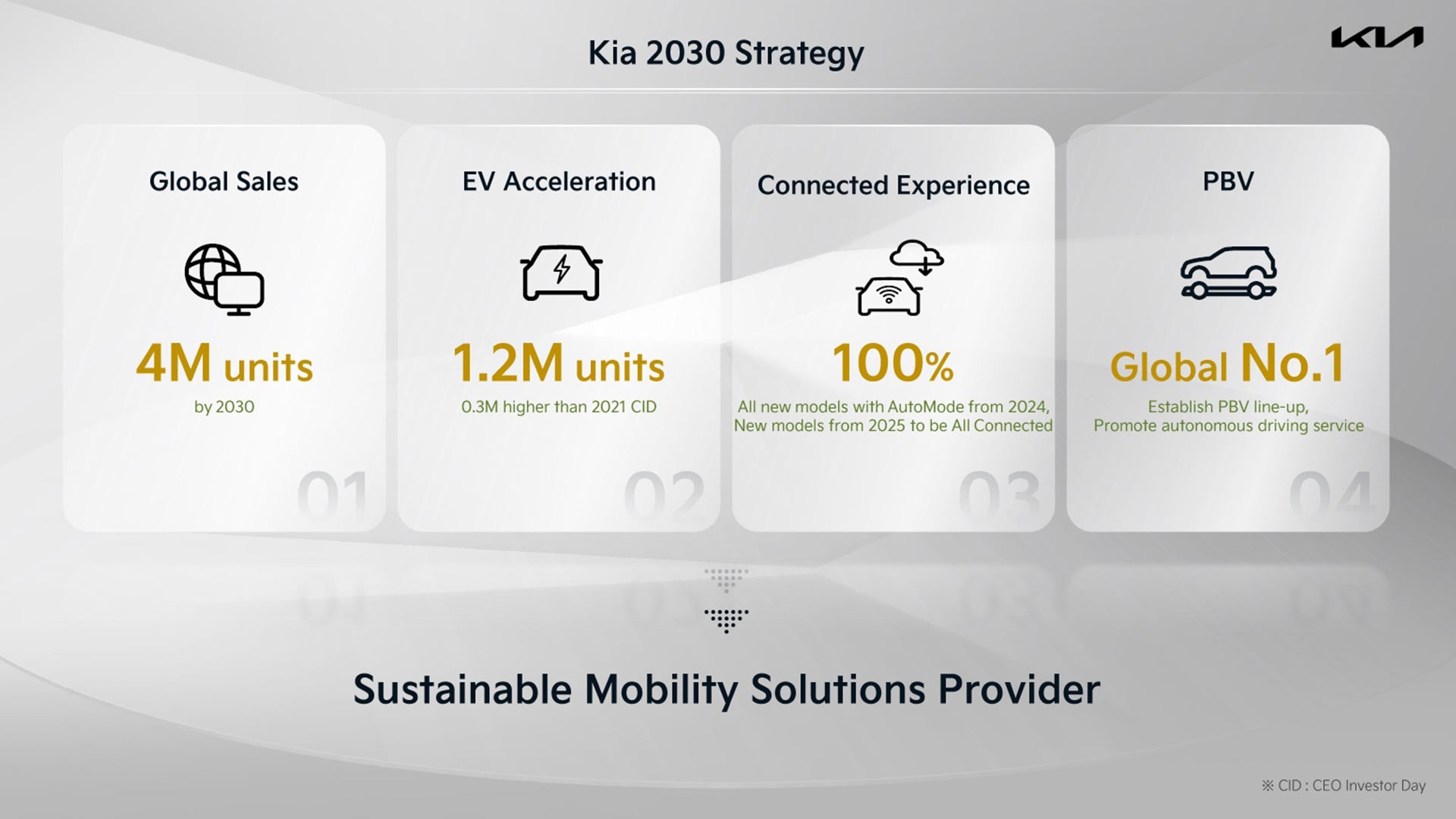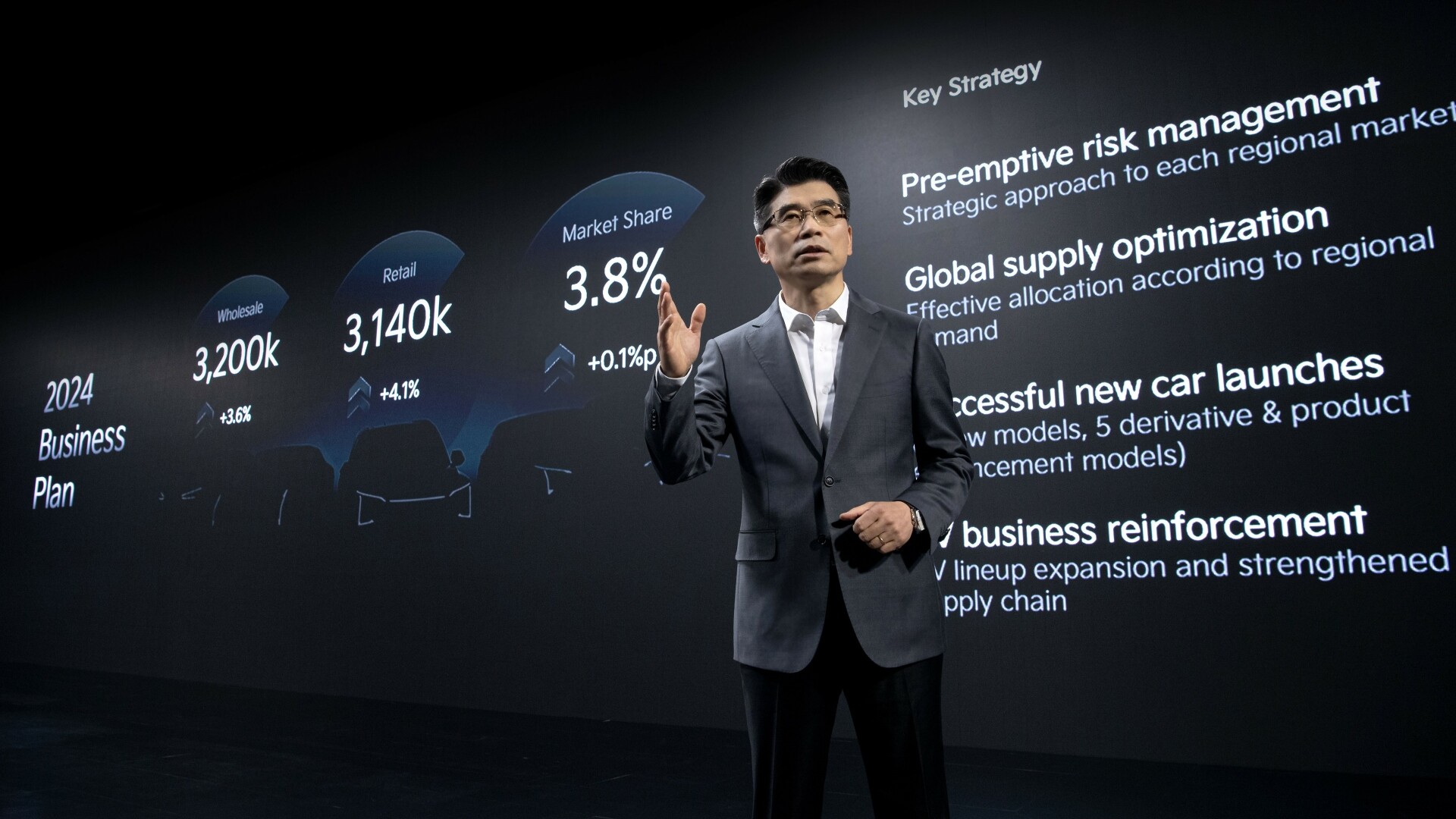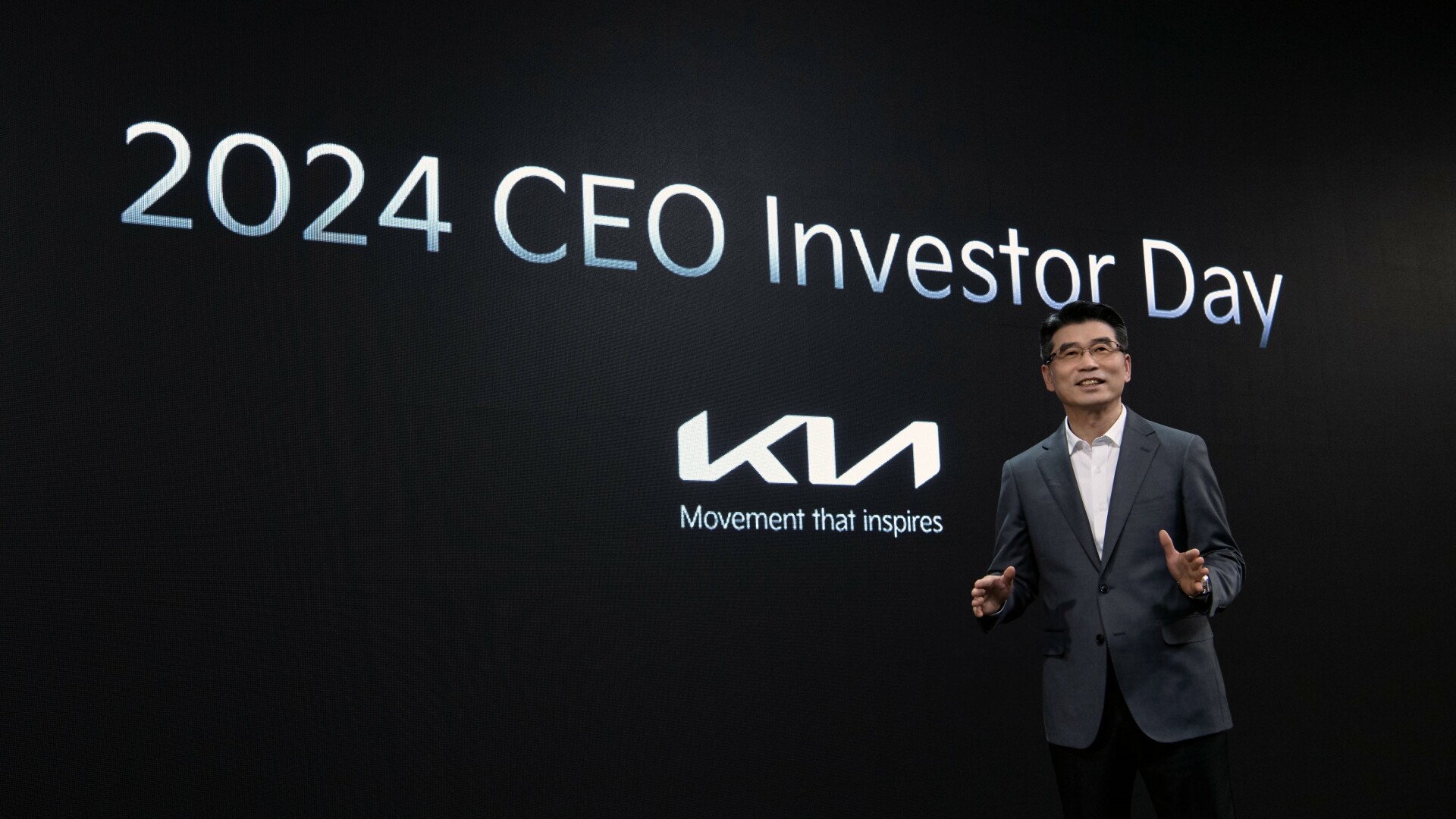Kia is gearing up for a significant transformation in its product lineup, with a strong emphasis on electric vehicles (EVs) and hybrids. During its CEO Investor Day on April 5, the company outlined its ambitious plans to expand its EV offerings and enhance its hybrid range, revealing key launch timings and strategic goals.
With a target of having 15 EVs, including two purpose-built vehicles (PBVs), on sale by 2027, Kia aims to achieve annual EV sales of 1.6 million units by 2030.
The company plans to introduce at least one new EV every year until 2027, starting with the launch of the EV3 electric crossover in the third quarter of 2024, following its conceptual preview last year. This will be followed by the introduction of region-specific models like the Europe-focused EV2 and the larger EV4, along with a Carens EV tailored for the Indian market.
In addition to expanding its EV lineup, Kia intends to bolster its hybrid offerings, with plans to increase the number of hybrid models from six in 2024 to nine in 2028. These next-generation hybrid powertrains promise improved performance, torque, and fuel efficiency, providing a viable option amidst fluctuating EV demand.

To support its electrification goals, Kia aims to leverage advanced battery technologies, including more energy-dense nickel cobalt manganese (NCM) batteries and lithium iron phosphate (LFP) packs. Despite anticipating steady long-term EV demand, the company acknowledges potential challenges such as economic fluctuations and changes in EV subsidies that may impact the pace of growth in the near term.
Looking ahead to 2024, Kia has an ambitious product launch roadmap, including the introduction of two new models and three facelifted models. Alongside the EV3 and the petrol-powered K4, facelifted versions of the EV6, K8, and Sportage are slated for release throughout the year, with the high-performance EV6 GT set to debut in the fourth quarter.
In line with its strategic vision, Kia plans to introduce its PV5 PBV in 2025, followed by the PV7 in 2027, with ambitious sales targets for both models by 2030. Additionally, the company aims to significantly increase its vehicle sales to 4.3 million units by 2030, with 1.6 million of those being EVs.

Recognizing the competitive industry, particularly with the rise of Chinese brands, Kia is committed to enhancing its product competitiveness, expanding into new PBV markets, and establishing a robust global service and parts operation system.
Embracing technological innovation, Kia will continue to roll out connected services and over-the-air updates across its model lineup, further solidifying its position as a forward-thinking automotive brand.
Moreover, with plans to manufacture 250,000 vehicles annually in China by 2027, Kia aims to not only cater to domestic and emerging markets but also strengthen its presence in regions like Australia, where the Chinese-built EV5 is set to debut this year.

